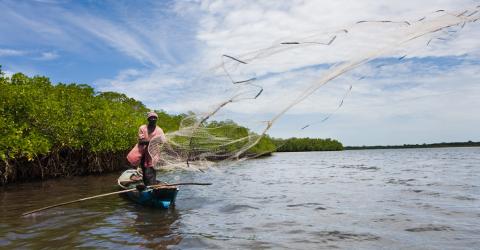
The importance of wetlands
Wetlands are vital for human survival. They are among the world’s most productive environments; cradles of biological diversity that provide the water and productivity upon which countless species of plants and animals depend for survival.
Wetlands are indispensable for the countless benefits or “ecosystem services” that they provide humanity, ranging from freshwater supply, food and building materials, and biodiversity, to flood control, groundwater recharge, and climate change mitigation.
Yet study after study demonstrates that wetland area and quality continue to decline in most regions of the world. As a result, the ecosystem services that wetlands provide to people are compromised.
Managing wetlands is a global challenge and the Convention presently counts 172 countries as Contracting Parties, which recognize the value of having one international treaty dedicated to a single ecosystem.
The Convention uses a broad definition of wetlands. This includes all lakes and rivers, underground aquifers, swamps and marshes, wet grasslands, peatlands, oases, estuaries, deltas and tidal flats, mangroves and other coastal areas, coral reefs, and all human-made sites such as fish ponds, rice paddies, reservoirs and salt pans.